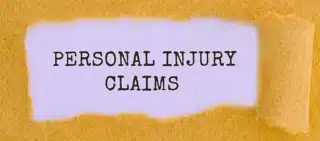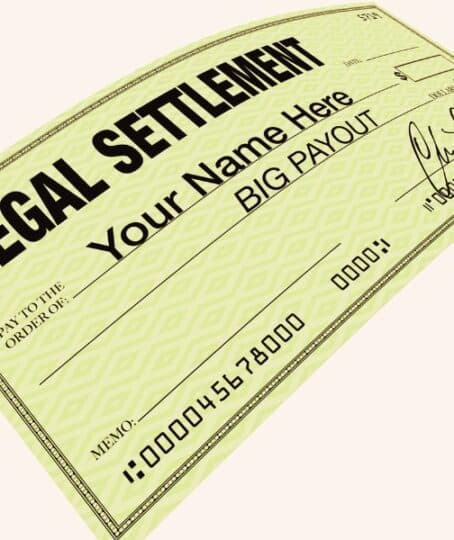
Overview of the Personal Injury Claim Process in Illinois No one expects to suffer an injury or get involved in...


A good settlement offer will typically be an offer that makes the injured party whole. Such an offer would likely contain an admission of some sort by the at-fault party that his or her actions resulted in the injured party’s injuries. Likewise, the offer will generally seek to compensate the injured party for the past and current damages to his or her property or person. The offer will also likely compensate the injured party for the significant changes to his or her life going forward, such as lost earning potential and, for instance, permanent disfigurement.

The insurance company may send a settlement offer, typically, early in the steps in a personal injury case. A personal injury case largely begins with the injured person filing a report or claim with the appropriate party, such as the police, his or her employer, or the insurance company. The insurance company for the at-fault party will review the case and respond. If the insurance company decides to do so, it will send a settlement offer to the injured party.

As a general note, injured parties should be aware that it is typically ill-advised to accept the first offer received from the insurance company. The exception to this general rule would be if his or her personal injury attorney reviews the offer and advises him or her to accept it. The insurance company often proposes a settlement that is far less than what the injured party could receive, possibly in the hopes that the insurance company will have to pay less money.
For this reason, injured parties are typically advised not to accept the first offer received by the insurance company and instead contact a personal injury lawyer, if he or she has not done so already. Contacting a personal injury attorney may help the injured person receive the maximum amount of recovery for his or her injuries and keep the insurance company at bay. Generally, insurance companies are more likely to take an injured party’s offer seriously if he or she has the assistance of counsel.
If the injured party or his or her attorney is unable to reach an acceptable settlement with the insurance company, then the injured party may decide to file a personal injury lawsuit in court.
Typically, the calculation of damages is based on the impact of the accident on the injured person and the ongoing impact the injury may have on the person going forward. No amount of money may truly compensate the person for the damage to his or her person and property; however, to the extent possible, calculation of damages seeks to make the injured person whole.
Usually, damages in a personal injury claim are divided into economic, non-economic, and punitive damages. Economic damages serve to compensate the injured party for the economic losses that he or she has suffered because of the injury. These damages or losses included property damage, medical expenses, prescriptions, loss of income, and other financial expenses associated with an injury.
Non-economic damages seek to address the “human” cost of personal injury. Non-economic damages include pain and suffering for the injured party and his or her family, permanent disfigurement, and other non-economic costs of personal injury.
Punitive damages serve to punish the wrongdoer or at-fault party and deter future wrongdoers from committing similar acts and injuring future parties like the injured party in the personal injury lawsuit. Punitive damages are typically appropriate and awarded in cases where the at-fault party acted intentionally or recklessly, such as in assault cases.
The injured party may be able to maximize a personal injury settlement by consulting a personal injury lawyer. As discussed above, insurance companies may offer the injured party a settlement amount that is lower than what the injured party is entitled to with the promise that it will be paid out fast. Getting an attorney after an auto accident, for instance, may protect an injured party from these practices and may set him or her up for a successful and adequate settlement.
Injured parties may maximize their personal injury settlement by immediately getting medical attention for their injuries and keeping meticulous records of the accident. Insurance companies may try to attribute the injured party’s current injury, for example, to old injuries or to the injured party’s failure to follow or seek medical treatment. By doing so, the insurance company may try to justify a lower payout to the injured party. Proactivity in seeking medical care and following his or her doctor’s advice may shield the injured party from such accusations.
Keeping meticulous records of the accident may also help the injured party prove that the at-fault party indeed caused his or her personal and property injury. Auto accidents, for example, happen rather quickly and suddenly. Often, finding the sequence of events that caused an auto accident requires analyzing detailed records. By taking photographs, videos, and written statements about the accident, the injured party can build his or her case to prove that his or her injuries are from the accident and that he or she is not at fault.
Refraining from making admissions at any time, specifically, directly following the accident, is important to preserving the injured party’s case and strengthening his or her ability to negotiate with the insurance company for a settlement offer. After an accident, the injured party and other involved parties will likely be in a state of shock, and it is common for people to make apologetic statements. These statements, while seemingly harmless and likely not intended as an actual admission of guilt, can be used against the parties later. For injured people, this can potentially impact the settlement amount.
Maintaining records of injury-related medical and other expenses following the accident may also be beneficial to the injured party in negotiations with the insurance company or at-fault party. If the injured party can support his or her requests for reimbursement with receipts, for instance, the insurance company or at-fault party may have a difficult time disputing the validity of the underlying charges.
The injured party is also encouraged to make sure that any settlement offer he or she considers adequately addresses non-economic damages (e.g., pain and suffering) and future economic damages. For example, the insurance company might offer to compensate the injured party for all medical expenses incurred but leave out consideration for loss of future earning potential or lost wages. An injured party in this situation would likely benefit from rejecting the insurance company’s offer and countering with his or her offer, or seeking the advice of a personal injury lawyer.

Overview of the Personal Injury Claim Process in Illinois No one expects to suffer an injury or get involved in...

Exploring Caps on Damages in Illinois Personal Injury Cases Illinois does not have laws capping damages in successful personal injury...

For one of the top Peoria law firms to manage your case, contact Strong Law Offices at (309) 688-5297. Top...